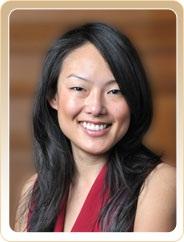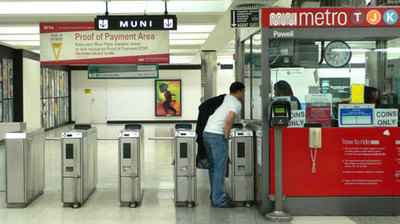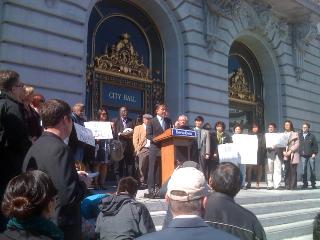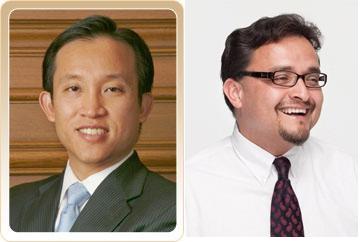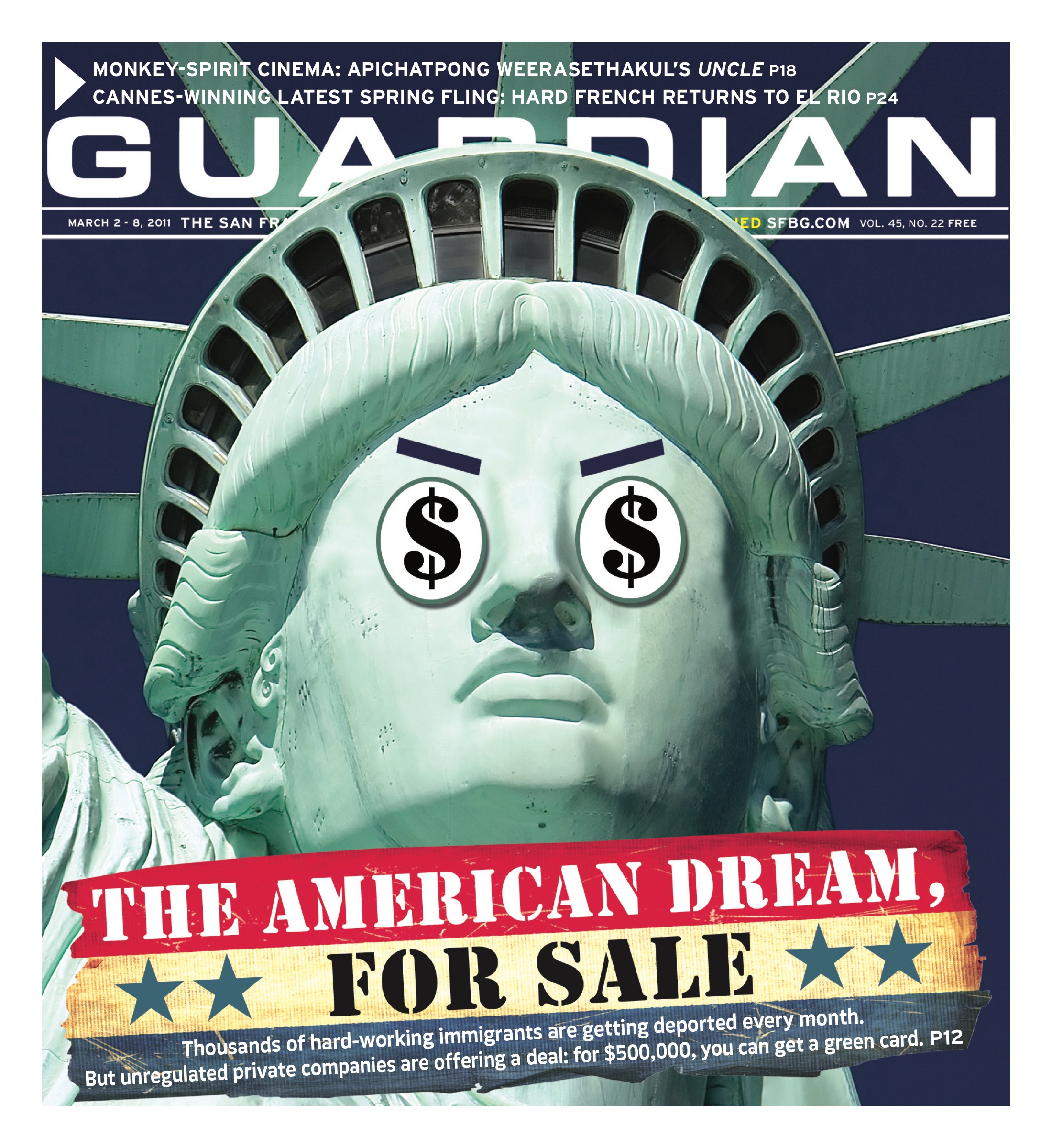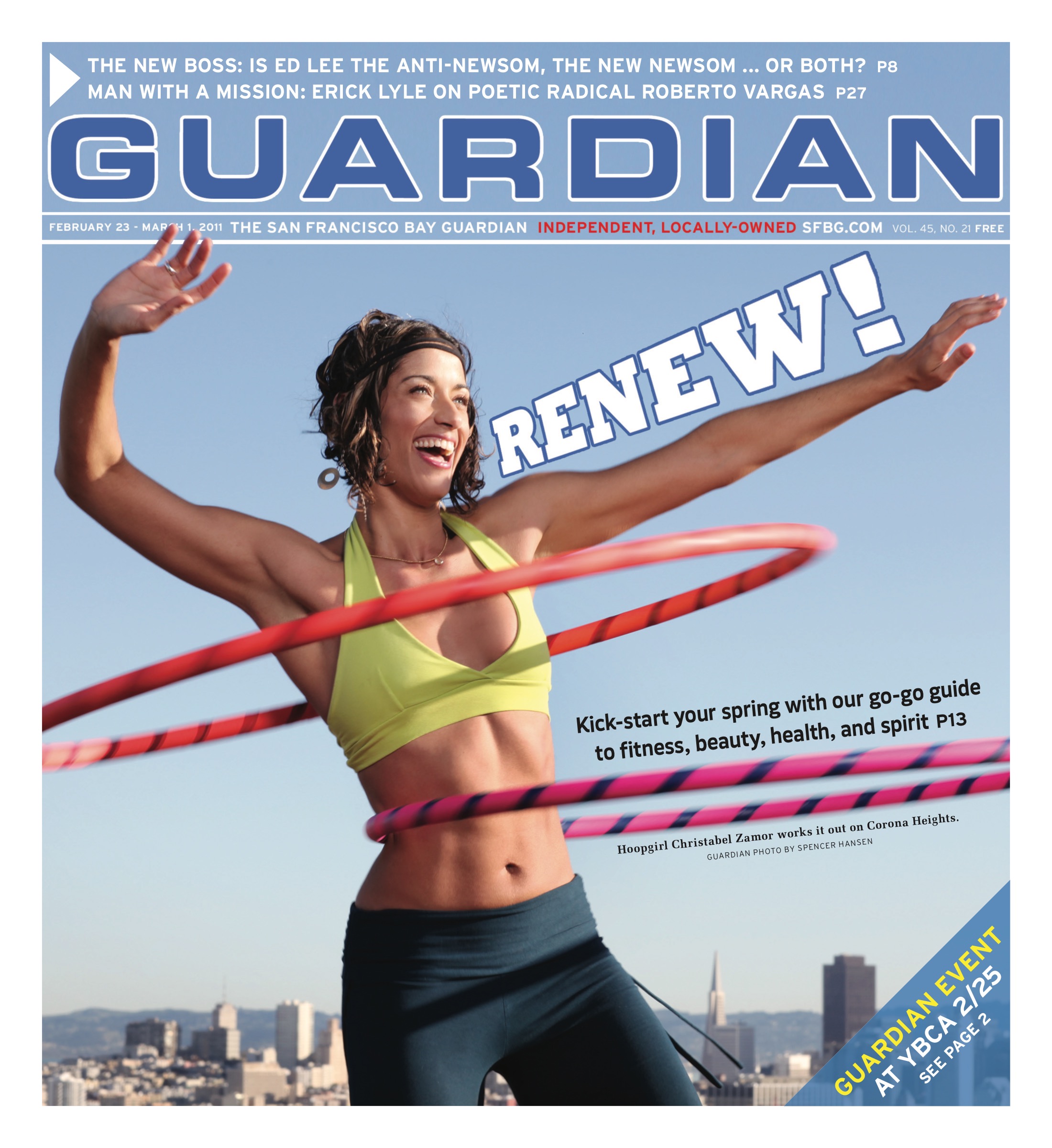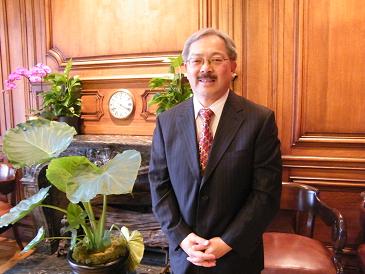WEDNESDAY 2
ROCK/BLUES/HIP-HOP
As A People, Blue Rabbit, My Second Surprise Hemlock Tavern. 9pm, $6.
Boys IV Men, Honey, Bleak Ethnique Elbo Room. 9pm, $5.
Ghost Town Refugees, Wild Son, Manchowder, 31 Bottom of the Hill. 9pm, $8.
JJ Grey, Sunny War Independent. 8pm, $25.
Missing Persons Yoshi’s San Francisco. 8pm, $18.
Nodzzz, Personal and the Pizzas, Tim Cohen’s Magick Trick Knockout. 9pm, $8.
Rubbersidedown, Sistas in the Pit, Swig, Red Light Circuit Rickshaw Stop. 8pm, $10.
Versus the Nothing, Outshined Kimo’s. 9pm.
Holcombe Waller Café Du Nord. 8pm, $16.
JAZZ/NEW MUSIC
Cosmo Alleycats Le Colonial, 20 Cosmo, SF; www.lecolonialsf.com. 7pm.
Dink Dink Dink, Gaucho, Michael Abraham Amnesia. 7pm, free.
Ben Marcato and the Mondo Combo Top of the Mark. 7:30pm, $10.
Michael Parsons Trio Revolution Café, 3248 22nd St, SF; (415) 642-0474. 8:30pm, free.
Paula West and George Mesterhazy Quartet Rrazz Room. 8pm, $35.
FOLK/WORLD/COUNTRY
Dgiin Milk. 9pm, $6.
DANCE CLUBS
Booty Call Q-Bar, 456 Castro, SF; www.bootycallwednesdays.com. 9pm. Juanita Moore hosts this dance party, featuring DJ Robot Hustle.
Cannonball Beauty Bar. 10pm, free. Rock, indie, and nu-disco with DJ White Mike.
Hands Down! Bar on Church. 9pm, free. With DJs Claksaarb, Mykill, and guests spinning indie, electro, house, and bangers.
Jam Fresh Wednesdays Vessel, 85 Campton, SF; (415) 433-8585. 9:30pm, free. With DJs Slick D, Chris Clouse, Rich Era, Don Lynch, and more spinning top40, mashups, hip hop, and remixes.
Mary-Go-Round Lookout, 3600 16th St, SF; (415) 431-0306. 10pm, $5. A weekly drag show with hosts Cookie Dough, Pollo Del Mar, and Suppositori Spelling.
No Room For Squares Som., 2925 16th St, SF; (415) 558-8521. 6-10pm, free. DJ Afrodite Shake spins jazz for happy hour.
Qoöl Mammoth End Up. 5-10pm, $5 (free before 7pm). Happy hour with Spesh, JDubya, Gravity, Derek Hena, and Never Knows.
Respect Wednesdays End Up. 10pm, $5. Rotating DJs Daddy Rolo, Young Fyah, Irie Dole, I-Vier, Sake One, Serg, and more spinning reggae, dancehall, roots, lovers rock, and mash ups.
Synchronize Il Pirata, 2007 16th St, SF; (415) 626-2626. 10pm, free. Psychedelic dance music with DJs Helios, Gatto Matto, Psy Lotus, Intergalactoid, and guests.
THURSDAY 3
ROCK/BLUES/HIP-HOP
Ale Mania Hemlock Tavern. 9pm, $6.
Eskmo, Blackbird Blackbird, oOoOO, DJG Independent. 9pm, $15.
Future Twin, Dadfag, Waste Rig Knockout. 9:30pm, $5.
A Hawk and A Handsaw, Sioux City Kid Café Du Nord. 9pm, $14.
Alan Iglesias Biscuits and Blues. 8 and 10pm, $16. Stevie Ray Vaughan tribute.
Leilujh, Aloud, Yellow Dress El Rio. 8pm, $6.
Christine Shields, William Winant Percussion Group, Sunfoot, Ruby Howl Amnesia. 9pm, $5.
Spooky Flowers, Jhameel, Dear Indugu, Steinway Junkies Bottom of the Hill. 9pm, $8.
Robin Trower Fillmore. 8pm, $37.50.
Wet Illustrated, Downtown Struts, Brothers Gross, Burnt Ones Thee Parkside. 9pm, $6.
Wild Nothing, Abe Vigoda, DJ Nako Rickshaw Stop. 9pm, $12.
JAZZ/NEW MUSIC
Stompy Jones Top of the Mark. 7:30pm, $10.
Paula West and George Mesterhazy Quartet Rrazz Room. 8pm, $40.
FOLK/WORLD/COUNTRY
Kelly McFarling Revolution Café, 3248 22nd St, SF; (415) 642-0474. 8:30pm, free.
Shut-Ins Atlas Café. 8-10pm, free.
Soja, Mambo Sauce, Chris Boomer Slim’s. 9pm, $21.
DANCE CLUBS
Afrolicious Elbo Room. 9:30pm, $5. DJs Pleasuremaker and Señor Oz plus guest Honey Knuckles spin Afrobeat, tropicália, electro, samba, and funk.
Caribbean Connection Little Baobab, 3388 19th St, SF; (415) 643-3558. 10pm, $3. DJ Stevie B and guests spin reggae, soca, zouk, reggaetón, and more.
Club Jammies Edinburgh Castle. 10pm, free. DJs EBERrad and White Mice spinning reggae, punk, dub, and post punk.
Drop the Pressure Underground SF. 6-10pm, free. Electro, house, and datafunk highlight this weekly happy hour.
Electric Feel Lookout, 2600 16th St, SF; www.fringesf.com. 9pm, $2. Indie music video dance party with subOctave and Blondie K, plus guest DJ Starr.
Guilty Pleasures Gestalt, 3159 16th St, SF; (415) 560-0137. 9:30pm, free. DJ TophZilla, Rob Metal, DJ Stef, and Disco-D spin punk, metal, electro-funk, and 80s.
Funktastique Tunnel Top, 601 Bush, SF; (415) 986-8900. 10pm, free. Rare grooves, funk, and electro-swing with Dr. Musco.
Holy Thursday Underground SF. 10pm, $5. Bay Area electronic hip hop producers showcase their cutting edge styles monthly.
Jivin’ Dirty Disco Butter, 354 11th St., SF; (415) 863-5964. 8pm, free. With DJs spinning disco, funk, and classics.
Lacquer Beauty Bar. 10pm-2am, free. DJs Mario Muse and Miss Margo bring the electro.
Lords of Acid, Angelspit, Radical G DNA Lounge. 8pm, $23.
Mestiza Bollywood Café, 3376 19th St, SF; (415) 970-0362. 10pm, free. Showcasing progressive Latin and global beats with DJ Juan Data.
1984 Mighty. 9pm, $2. The long-running New Wave and 80s party has a new venue, featuring video DJs Mark Andrus, Don Lynch, and celebrity guests.
Peaches Skylark, 10pm, free. With an all female DJ line up featuring Deeandroid, Lady Fingaz, That Girl, and Umami spinning hip hop.
Thursday Special Tralala Revolution Café, 3248 22nd St, SF; (415) 642-0474. 5pm, free. Downtempo, hip-hop, and freestyle beats by Dr. Musco and Unbroken Circle MCs.
FRIDAY 4
ROCK/BLUES/HIP-HOP
Baths, Braids, Gobble Gobble Rickshaw Stop. 8:30pm, $12.
Crystal Castles, Suuns Warfield. 9pm, $28.
Dead Prez, Sellassie Yoshi’s San Francisco. 10:30pm, $25.
Drive-By Truckers, Heartless Bastards Fillmore. 9pm, $25.
“Funk Cancer” DNA Lounge. 8pm. Benefit for Leukemia and Lymphoma Society with Harry and the Hitmen, Sun Hop Fat, and more.
I the Mighty, A Night in Hollywood, Bruises Bottom of the Hill. 9:30pm, $12.
Kaki King, Zoe Keating Yoshi’s San Francisco. 8 and 10pm.
Lonely Wild, Tito Amnesia. 7pm, $5-10.
McCabe and Mrs. Miller, Tippy Canoe, Bye Bye Blackbirds Hemlock Tavern. 9:30pm, $8.
Nat Keefe Concert Carnival Independent. 9pm, $20-35.
Norma Jean, Stick To Your Guns, Impending Doom, Of Legends Slim’s. 7:30pm, $16.
Kevin Russell Biscuits and Blues. 8 and 10pm, $20.
Strangelove, Erasure-Esque, Sanity Assassins Café Du Nord. 9:30pm, $10.
Zero: A Chance in a Million Great American Music Hall. 9pm, $35. With Steve Kimock, Greg Anton, Judge Murphy, Chip Roland, Liam Hanrahan, and special guests.
JAZZ/NEW MUSIC
Black Market Jazz Orchestra Top of the Mark. 9pm, $10.
Boca Do Rio Red Poppy Art House. 8pm, $10-12.
Hugh Maskela Palace of Fine Arts Theatre, 3301 Lyon, SF; www.sfjazz.org. 8pm, $25-60.
Paula West and George Mesterhazy Quartet Rrazz Room. 8pm, $45.
FOLK/WORLD/COUNTRY
Shareef Ali and the Radical Folksonomy, Great Girls Blouse, Maria Quiles Brainwash, 1122 Folsom, SF; www.brainwash.com. 8pm, free.
Sioux City Kid and Revolutionary Ramblers Revolution Café, 3248 22nd St, SF; (415) 642-0474. 9pm, free.
Chuchito Valdez Peña Pachamama, 1630 Powell, SF; (415) 646-0018. 10pm.
DANCE CLUBS
Afro Bao Little Baobab, 3388 19th St, SF; (415) 643-3558. 10pm, $5. Afro and world music with rotating DJs including Stepwise, Steve, Claude, Santero, and Elembe.
Le Castle Vania, Fukkk Offf, Realboy, Fabian Campos, Robot Mafia, Mikeyydrops Mezzanine. 9pm, $20.
Deeper 222 Hyde, 222 Hyde, SF; (415) 345-8222. 9pm, $10. With rotating DJs spinning dubstep and techno.
Dirty Rotten Dance Party Madrone Art Bar. 9pm, $5. With DJs Morale, Kap10 Harris, and Shane King spinning electro, bootybass, crunk, swampy breaks, hyphy, rap, and party classics.
Exhale, Fridays Project One Gallery, 251 Rhode Island, SF; (415) 465-2129. 5pm, $5. Happy hour with art, fine food, and music with Vin Sol, King Most, DJ Centipede, and Shane King.
Fubar Fridays Butter, 354 11th St., SF; (415) 863-5964. 6pm, $5. With DJs spinning retro mashup remixes.
Good Life Fridays Apartment 24, 440 Broadway, SF; (415) 989-3434. 10pm, $10. With DJ Brian spinning hip hop, mashups, and top 40.
Hot Chocolate Milk. 9pm, $5. With DJs Big Fat Frog, Chardmo, DuseRock, and more spinning old and new school funk.
Oldies Night Knockout. 9pm, $2-4. Doo-wop, one-hit wonders, soul, and more with DJs Primo, Daniel, and Lost Cat.
120 Minutes Elbo Room. 10pm, $5-10. With DJs oOoOO, Whitch, Nako, and guests Tearist and Rezound.
Rockabilly Fridays Jay N Bee Club, 2736 20th St, SF; (415) 824-4190. 9pm, free. With DJs Rockin’ Raul, Oakie Oran, Sergio Iglesias, and Tanoa “Samoa Boy” spinning 50s and 60s Doo Wop, Rockabilly, Bop, Jive, and more.
Some Thing Stud. 10pm, $7. VivvyAnne Forevermore, Glamamore, and DJ Down-E give you fierce drag shows and afterhours dancing.
Strangelove Cat Club. 9:30pm, $6 (free before 10pm). Goth and industrial with DJs Tomas Diablo, Lowlife, Fact50, and DeathBoy.
Vintage Orson, 508 Fourth St, SF; (415) 777-1508. 5:30-11pm, free. DJ TophOne and guest spin jazzy beats for cocktalians.
SATURDAY 5
ROCK/BLUES/HIP-HOP
Broken Records, US Royalty, Pancho-san Rickshaw Stop. 8:30pm, $12.
Carlton Melton, White Manna, Outlaw, Moccretro Hemlock Tavern. 9:30pm, $8.
Drive-By Truckers Amoeba, 1855 Haight, SF; www.amoeba.com. 2pm, free.
Drive-By Truckers, Heartless Bastards Fillmore. 9pm, $25.
Escape the Fate, Alesana, Motionless in White, Get Scared, Drive A Regency Ballroom. 7:30pm, $20.
John Lee Hooker Jr. Biscuits and Blues. 8 and 10pm, $22.
Hot Lunch, Friggin Harderships Thee Parkside. 3pm, free.
Morcheeba, Mulers Warfield. 9pm, $30.
Stan Ridgway, We Is Shore Dedicated, Red River Amnesia. 9pm, $15.
Megan Slankard, Family Crest, Pwolf and Avi Bottom of the Hill. 8:45pm, $12.
Chris Sprauge and His 18 Wheelers, Mitch Polzak and 10-4, Kit Lopez and Glen Earl Brown Jr. Verdi Club, 2424 Mariposa, SF; www.oldtimey.net. 9pm, $10-12.
Too $hort Yoshi’s San Francisco. 8 and 10pm, $28.
Zero: A Chance in a Million Great American Music Hall. 9pm, $35. With Steve Kimock, Greg Anton, Judge Murphy, Chip Roland, Liam Hanrahan, and special guests.
JAZZ/NEW MUSIC
Carton 4 Tet Revolution Café, 3248 22nd St, SF; (415) 642-0474. 9pm, free.
Anna Estrada and Bill Kwan Savanna Jazz. 7:30pm, $10.
Kenny Werner Quintet Herbst Theatre, 401 Van Ness, SF; www.sfjazz.org. 8pm, $25-65.
Lisa Engelken Band Red Poppy Art House. 8pm, $12-20.
Paula West and George Mesterhazy Quartet Rrazz Room. 8pm, $45.
FOLK/WORLD/COUNTRY
Greensky Bluegrass, Huckle Slim’s. 9pm, $16.
Guntown, Daryl Shawn Brainwash, 1122 Folsom, SF; www.brainwash.com. 8pm, free.
Zigaboo Modeliste: King of the Funky Drums, Kofy Brown Café Du Nord. 9pm, $20.
Queen Makedah Pier 23 Café, Pier 23, SF; www.pier23cafe.com. 9pm, $10.
Chuchito Valdez Peña Pachamama, 1630 Powell, SF; (415) 646-0018. 10pm.
Craig Ventresco and Meredith Axelrod Atlas Café. 4pm, free.
DANCE CLUBS
Afro Bao Little Baobab, 3388 19th St, SF; (415) 643-3558. 10pm, $5. Afro and world music with rotating DJs including Stepwise, Steve, Claude, Santero, and Elembe.
Bar on Church 9pm. Rotating DJs Foxxee, Joseph Lee, Zhaldee, Mark Andrus, and Nuxx.
Debaser Knockout. 9pm, $5. DJ Jamie Jams and Emdee of Club Neon bust out 90s alternative jams.
Dirty Talk Dance Party Deco Lounge, 510 Larkin, SF; (415) 346-2025. 10pm, $5. Disco, house, funk, and more with guest Sergio (Go Bang!)
Everlasting Bass 330 Ritch. 10pm, $5-10. Bay Area Sistah Sound presents this party, with DJs
Zita and Pam the Funkstress spinning hip-hop, soul, funk, reggae, dancehall, and club classics.
For the Love Vessel, 85 Campton Pl., SF; www.vesselsf.com. 9pm. With Rony Seikaly, Pheeko Dubfunk, and Lexel.
Gemini Disco Underground SF. 10pm, $5. Disco with DJ Derrick Love and Nicky B. spinning deep disco.
Harvard Bass, Nadastrom Mighty. 9pm, $10. With Nisus and Sleazemore.
HYP Club Eight, 1151 Folsom, SF; www.eightsf.com. 10pm, free. Gay and lesbian hip-hop party, featuring DJs spinning the newest in the top 40s hip hop and hyphy.
Kontrol Endup. 10pm, $20. With resident DJs Alland Byallo, Craig Kuna, Sammy D, and Nikola Baytala spinning minimal techno and avant house.
Leisure Paradise Lounge. 10pm, $7. DJs Omar, Aaron, and Jet Set James spinning classic britpop, mod, 60s soul, and 90s indie.
New Wave City: Soundtrack Night DNA Lounge. 9pm, $7-12. Skip and Shindog spin hits from 80s movies.
Rock City Butter, 354 11th St., SF; (415) 863-5964. 6pm, $5 after 10pm. With DJs spinning party rock.
Saturday Night Soul Party Elbo Room. 10pm, $10. Sixties soul with DJs Lucky, Phengren Oswald, and Paul Paul.
Souf Club Six. 9pm, $7. With DJs Jeanine Da Feen, Motive, and Bozak spinning southern crunk, bounce, hip hop, and reggaeton.
Soundscape Vortex Room, 1082 Howard, SF; www.myspace.com/thevortexroom. With DJs C3PLOS, Brighton Russ, and Nick Waterhouse spinning Soul jazz, boogaloo, hammond grooves, and more.
Spirit Fingers Sessions 330 Ritch. 9pm, free. With DJ Morse Code and live guest performances.
SUNDAY 6
ROCK/BLUES/HIP-HOP
Belphegor, Blackguard, Neuraxis, Pathology Thee Parkside. 8pm, $16.
Crawler, Manifest, Sheens Café Du Nord. 8pm, $10.
Damon Fowler Biscuits and Blues. 8 and 10pm, $15.
Hosannas, Winnie Byrd Hemlock Tavern. 9pm, $6.
Laco$te, Religious Girls, Simo Soo Rickshaw Stop. 8pm, $10.
“Scarlett Fever” DNA Lounge. 1-9pm, $15. Rett Syndrome benefit with Big Sandy and His Fly-Rite Boys, Chop Tops, La Cholita, Stigma 13, and more.
JAZZ/NEW MUSIC
Gerard Clayton Trio Florence Gould Theatre, Legion of Honor, 100 Legion of Honor Dr., SF; www.sfjazz.org. 2pm, $25-40.
Kally Price Old Blues and Jazz Band, Emperor Norton’s Jazz Band Amnesia. 9pm, $5.
Celia Malheiros, Rich Kuhns, Buca Necak Bliss Bar, 4026 24th St., SF; www.blissbarsf.com. 4:30pm, $10.
Noertker’s Moxie Musicians’ Union Hall, 116 Ninth St, SF; www.noertker.com. 7:30pm, $10.
Tom Lander Duo Medjool, 2522 Mission, SF; www.medjoolsf.com. 6-9pm, free.
Paula West and George Mesterhazy Quartet Rrazz Room. 7pm, $40.
FOLK/WORLD/COUNTRY
Family Folk Explosion Revolution Café, 3248 22nd St, SF; (415) 642-0474. 8pm, free.
Ragged Jubilee Thee Parkside. 2pm, free.
Rock Soup Ramblers Café Royale, 800 Post, SF; (415) 641-6033. 8pm, free.
DANCE CLUBS
Afterglow Nickies, 466 Haight, SF; (415) 255-0300. An evening of mellow electronics with resident DJs Matt Wilder, Mike Perry, Greg Bird, and guests.
Call In Sick Skylark. 9pm, free. DJs Animal and I Will spin danceable hip-hop.
DiscoFunk Mashups Cat Club. 10pm, free. House and 70’s music.
Dub Mission Elbo Room. 9pm, $6. Dub, roots, and classic dancehall with DJ Sep, Maneesh the Twister, and guest Irie Dole.
Gloss Sundays Trigger, 2344 Market, SF; (415) 551-CLUB. 7pm. With DJ Hawthorne spinning house, funk, soul, retro, and disco.
Honey Soundsystem Paradise Lounge. 8pm-2am. “Dance floor for dancers – sound system for lovers.” Got that?
Kick It Bar on Church. 9pm. Hip-hop with DJ Zax.
La Pachanga Blue Macaw, 2565 Mission, SF; www.thebluemacawsf.com. 6pm, $10. Salsa dance party with live Afro-Cuban salsa bands.
Religion Bar on Church. 3pm. With DJ Nikita.
Swing Out Sundays Rock-It Room. 7pm, free (dance lessons $15). DJ BeBop Burnie spins 20s through 50s swing, jive, and more.
MONDAY 7
ROCK/BLUES/HIP-HOP
Civil Twilight, Daylights Independent. 8pm, $12.
DeVotchKa, White Buffalo Great American Music Hall. 8pm, $26.
Diamond Rings, P.S. I Love You, AB and the Sea Rickshaw Stop. 8pm, $12.
David Gray, Lisa O’Neill Davies Symphony Hall, 301 Van Ness, SF; www.ticketmaster.com. 8pm, $45-65.
Jon Cohen Experimental, Bang Girl Group Revue, Teenage Sweater Elbo Room. 9pm, $10.
Kataklysm, All Shall Perish, Decrepit Birth, Conducting from the Grave Slim’s. 8pm, $20.
Macklemore, Ryan Lewis, Blueprint Café Du Nord. 9:30pm, $15.
“Switchboard Music Festival” Hemlock Tavern. 6pm, $8. With Real Vocal String Quartet, Gojogo, and the Genie.
“Teena Marie Birthday Tribute” Yoshi’s San Francisco. 8pm, $25. With Biscuit.
DANCE CLUBS
Death Guild DNA Lounge. 9:30pm, $3-5. Gothic, industrial, and synthpop with Joe Radio, Decay, and Melting Girl.
Krazy Mondays Beauty Bar. 10pm, free. With DJs Ant-1, $ir-Tipp, Ruby Red I, Lo, and Gelo spinning hip hop.
M.O.M. Madrone Art Bar. 6pm, free. With DJ Gordo Cabeza and guests playing all Motown every Monday.
Manic Mondays Bar on Church. 9pm. Drink 80-cent cosmos with Djs Mark Andrus and Dangerous Dan. Network Mondays Azul Lounge, One Tillman Pl, SF; www.inhousetalent.com. 9pm, $5. Hip-hop, R&B, and spoken word open mic, plus featured performers. Sausage Party Rosamunde Sausage Grill, 2832 Mission, SF; (415) 970-9015. 6:30-9:30pm, free. DJ Dandy Dixon spins vintage rock, R&B, global beats, funk, and disco at this happy hour sausage-shack gig. Skylarking Skylark. 10pm, free. With resident DJs I & I Vibration, Beatnok, and Mr. Lucky and weekly guest DJs.
TUESDAY 8
ROCK/BLUES/HIP-HOP
Asobi Seksu, Brahms, Dandelion War Bottom of the Hill. 9pm, $14. DeVotchKa, Priscilla Ann Great American Music Hall. 8pm, $26. Kisses Rickshaw Stop. 8pm, $10. Makepeace Brothers, Raining Jane Café Du Nord. 9pm, $12. “Savoy Brown 45th Anniversary” Biscuits and Blues. 8 and 10pm, $24. Shrapnelles, Topless Mongos, Spencey Dood and the Doodles, Primitive Hearts Hemlock Tavern. 9pm, $6. Starfucker, Unknown Mortal Orchestra Independent. 8pm, $15. Yann Tiersen, Breathe Owl Breath Regency Ballroom. 8pm, $25. John Wiese, Dimmer, Orhima, Plumes Amnesia. 9:30pm, $6.
JAZZ/NEW MUSIC
Haggau Cohen Milo Revolution Café, 3248 22nd St, SF; (415) 642-0474. 8:30pm, free. Ricardo Scales Top of the Mark. 6:30pm, $5.
FOLK/WORLD/COUNTRY
Dave Hanley, Albatross West, Travis Vick, Nick Shattell Club Waziema, 543 Divisadero, SF; www.citysessions.com. 8pm, free.
DANCE CLUBS
Fat Tuesday Carnaval Party: Foga Na Roupa Elbo Room. 9pm, $10. With DJs Carioca and P-Shot. Eclectic Company Skylark, 9pm, free. DJs Tones and Jaybee spin old school hip hop, bass, dub, glitch, and electro. Extra Classic DJ Night Little Baobab, 3388 19th St, SF; www.bissapbaobab.com. 10pm. Dub, roots, rockers, and reggae from the 60s, 70s, and 80s. Share the Love Trigger, 2344 Market, SF; (415) 551-CLUB. 5pm, free. With DJ Pam Hubbuck spinning house.

